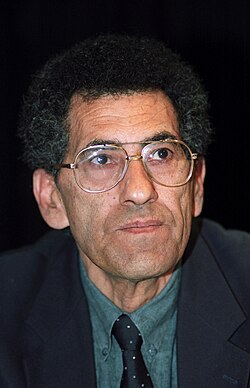Culture

- Hiam Abbass, actress and film director
- Talleen Abu Hanna, Miss Trans Israel
- Mira Awad, singer-songwriter, represented Israel at Eurovision Song Contest
- Lucy Ayoub, television presenter (mother was born Jewish, converted to Christianity)
- Mohammad Bakri, actor and film director
- Nas Daily, vlogger
- Salim Daw, actor
- Elham Dwairy Tabry, author
- Angelina Fares, beauty pageant contestant; finalist in Miss Israel 2007. [5]
- Emile Habibi, writer of literature
- Rashid Hussein, poet, orator, journalist and Arabic-Hebrew translator
- Norman Issa, actor
- Hanna Jubran, sculptor
- Nasrin Kadri, singer (converted to Judaism as an adult)
- Ahmad Kanaan, painter and sculptor
- Sayed Kashua, author and journalist
- Clara Khoury, actress
- Reda Mansour, poet, historian, and Israeli Ambassador to Ecuador, Brazil, and Panama
- Salman Masalha, poet, writer, essayist and translator
- Salman Natour, writer, journalist, and playwright [6]
- Samih al-Qasim, poet [7]
- Rana Raslan, Miss Israel 1999
- Samira Saraya, actor, filmmaker, and rapper
- Anton Shammas, poet and translator
- Fatma Shanan, painter






